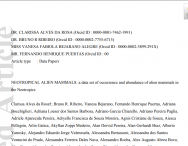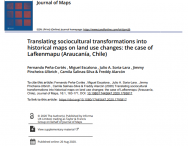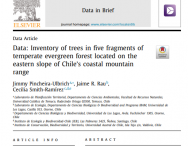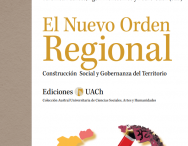NEOTROPICAL CARNIVORES: a data set on carnivore distribution in the Neotropics
Descripcion del proyecto
Mammalian carnivores are considered a key group in maintaining ecological health and can indicate potential ecological integrity in landscapes where they occur. Carnivores also hold high conservation value and their habitat requirements can guide management and conservation plans. The order Carnivora has 84 species from 8 families in the Neotropical region: Canidae; Felidae; Mephitidae; Mustelidae; Otariidae; Phocidae; Procyonidae; and Ursidae. Herein, we include published and unpublished data on native terrestrial Neotropical carnivores (Canidae; Felidae; Mephitidae; Mustelidae; Procyonidae; and Ursidae). NEOTROPICAL CARNIVORES is a publicly available data set that includes 99,605 data entries from 35,511 unique georeferenced coordinates. Detection/non-detection and quantitative data were obtained from 1818 to 2018 by researchers, governmental agencies, non-governmental organizations, and private consultants. Data were collected using several methods including camera trapping, museum collections, roadkill, line transect, and opportunistic records. Literature (peer-reviewed and grey literature) from Portuguese, Spanish and English were incorporated in this compilation. Most of the data set consists of detection data entries (n = 79,343; 79.7%) but also includes non-detection data (n = 20,262; 20.3%). Of those, 43.3% also include count data (n = 43,151). The information available in NEOTROPICAL CARNIVORES will contribute to macroecological, ecological, and conservation questions in multiple spatiotemporal perspectives. As carnivores play key roles in trophic interactions, a better understanding of their distribution and habitat requirements are essential to establish conservation management plans and safeguard the future ecological health of Neotropical 29 ecosystems. Our data paper, combined with other large-scale data sets, has great potential to clarify species distribution and related ecological processes within the Neotropics. There are no copyright restrictions and no restriction for using data from this data paper, as long as the data paper is cited as the source of the information used. We also request that users inform us of how they intend to use the data.











